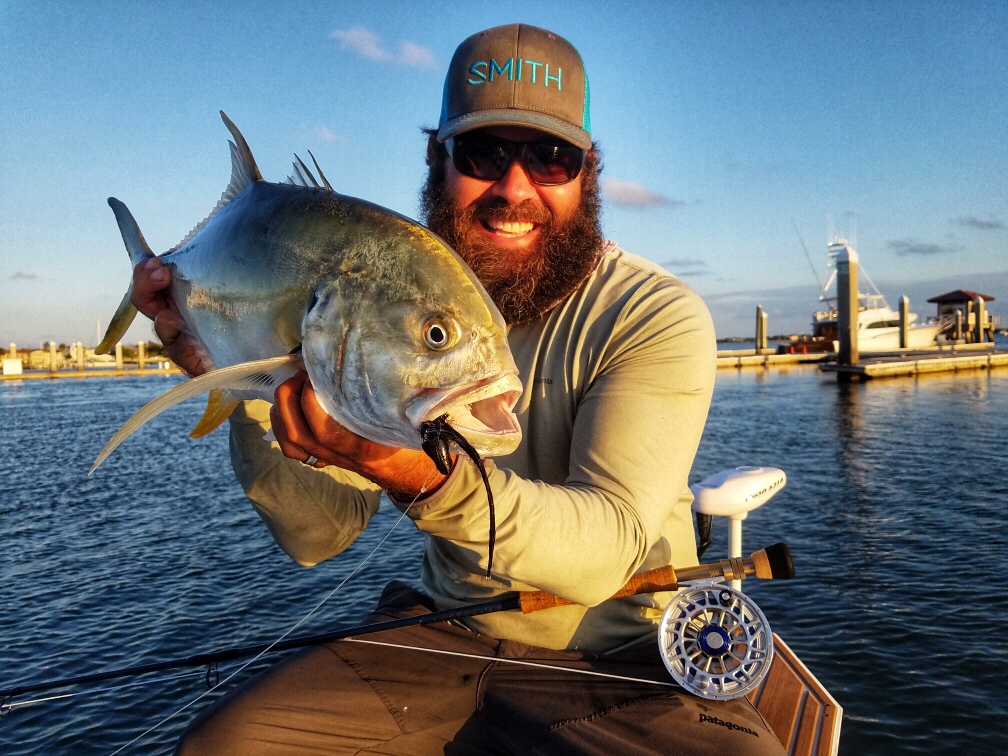Since saltwater is home to much more fish than freshwater, it’s no surprise many people want to take their fly fishing skills to these water sources. However, it’s crucial to know if the fly will float or sink since it directly impacts your chances of catching a fish.
Fly fishing flies float in saltwater if you choose the correct type, though many are designed to sink. You can use either to catch almost any lightweight fish in saltwater. Make sure you research the type of fish you’re catching to know if you need a floating, quick-sinking, or slow-sinking fly.

In this post, we’ll cover some tips for finding the best floating or sinking fly for saltwater fly fishing, along with why you might want to consider a quick-sinking fly. Lastly, we’ll discuss the importance of choosing the correct rod with your fly.
Should You Get Floating Flies for Saltwater Fly Fishing?
Saltwater fly fishing requires special gear you won’t find in a freshwater angler’s setup. Not only is the water denser, but it’s usually deeper, and the fish are tougher to catch. All of these changes call for different gear, but does it affect your flies?
You might be surprised to learn you can use floating and sinking flies in saltwater, depending on the situation.
Ask yourself the following questions before deciding on if you want a floating fly for saltwater fly fishing:
- Where do the fish you’re trying to catch like to swim? Are they close to the surface or near the bottom of the water? Fish that swim near the top typically prefer a floating fly. Some fish will chase sinking and floating flies. Make sure you research the fish beforehand to get the best results.
- How heavy are the fish? Heavy fish usually require a sinking fly simply because they can snap a lightweight fly off the line without a problem. This rule doesn’t apply to all big fish, but it’s a general rule of thumb to follow. If you’re catching lightweight fish near the surface, a floating fly is an excellent choice.
- What are local fishermen suggesting? Some of the best advice comes from local experienced anglers who know a thing or two about saltwater fish. Ask if they’re using floating or sinking flies, and don’t forget to get as much information about their rods and lines, too.
- Are you using a transparent or opaque line? Clear lines are often used with sinking lures to blend in with the water. If a fish sees an opaque line behind a fly, it might be turned away from it. However, surface-level saltwater flies can be opaque or clear since the line floats and the fish can’t see it.
- How deep is the water you’re fly fishing in? If you’re fishing in deep water (also known as blue water in oceans or seas), consider using a sinking fly to increase your chances of catching a bigger fish. Remember, heavyweight fish require a heavyweight rod, a durable fly fishing line, and more.
Floating flies aren’t always the best choice, but they can make a world of difference when fishing in shallow saltwater pools. They gather the attention of high-swimming fish, letting you get a bite without having to do much work. Many experts suggest letting the rod do the work when using floating flies.

Why Would You Want a Sinking Fly?
While fishing flies that float in saltwater are a fantastic option for many situations, they’re not the be-all and end-all option. Sinking flies have their place in the saltwater, so we’re going to dive into a handful of scenarios in which you should switch to a sinking fly.
Keep in mind there’s more than one kind of sinking fly, so we’ll cover everything you need to know below.
- Fish that swim in deep water (blue water) prefer sinking flies. As mentioned earlier in the article, a sinking line lets you attract many fish who prefer swimming deeper in the water. Most blue water fish don’t swim up to the surface, though there are a few exceptions. Again, local anglers will have a few helpful tips for the area.
- There are two types of sinking flies. MidCurrent explains the two kinds of sinking flies include slow-sinking and quick-sinking flies. Slow-sinking flies work well if you want to attract high-swimming fish by dipping below the surface, but quick-sinking flies are great because the saltwater is denser and slows the movement.
- The sinking motion can catch a fish’s attention much quicker than a floating fly. Fish notice small movements, whether they’re above or below the surface. However, they’ll definitely notice a quick-sinking fly going about 15 to 20 feet (4.57 to 6.1 meters) in front of them. Many fish will chase a fly that’s far off but not right on top of them.
- Saltwater is denser than freshwater, which means it takes longer for the fly to sink. Using a sinking fly in saltwater is much different than using it in the freshwater lakes, rivers, and ponds you’re used to. They don’t drop like a rock, though you can get bulky, heavyweight flies if you need them to speed up a bit.
Sinking flies can be a game-changer while saltwater fly fishing. If you’re far from the shore, you can use a sinking fly to catch tons of fish. Keep in mind they’re not always a worthwhile investment for shallow saltwater fly fishing, but it depends on the fish you’re looking for. To learn about the importance of a rod and fly combo, read on.
Choose the Right Fly Rod With Your Saltwater Fly
Regardless of if you’re using fishing flies that float in saltwater, or ones that sink, it’s essential to find the best rod for the situation. Using the wrong rod will ruin your chances, even if you have the best fly in the world. Fortunately, we have you covered with three must-know suggestions below.
An Incorrect Fly Rod and Fly Combo Can Ruin Your Day
Fish Talk Mag shows many beginners make the mistake of using their freshwater fly fishing setup when heading to a saltwater location. The same issue applies to getting a high-end fly with a low-end or incorrect rod. Ensure you know if your rod is designed for sinking or floating flies (some can do both, but many others require a specific choice).
Deep Water Typically Requires Heavy Rods
Heavy rods can handle the weight and pressure large fish put on the line. If your fly is too small or won’t sink quickly enough, no fish will see it. Once the fish bites the bait and gets hooked, you should reel it in with the heavyweight reel.
Saltwater Fly Fishing Tends To Be More Challenging
Don’t try to catch a million fish on your first trip. Shallow saltwater is usually much easier than deep saltwater fly fishing, so bring a floating fly and stay near the shore. Once you understand the situation, you can get a sinking fly and head to deeper water.

Conclusion
Now that you know that some fishing flies float in saltwater, and how to choose a sinking or floating fly, you’re one step closer to the perfect setup. Remember to take your time, let the rod do the work, and research the fish you’re trying to catch before going to saltwater. It’s much more challenging to catch a deep-swimming fish with a floating fly!
Here’s a quick review of the key points:
- You can choose between a sinking, quick-sinking, or floating fly for saltwater.
- It’s crucial to find the right rod to match your saltwater fly.
- Floating flies are very useful in shallow saltwater.
